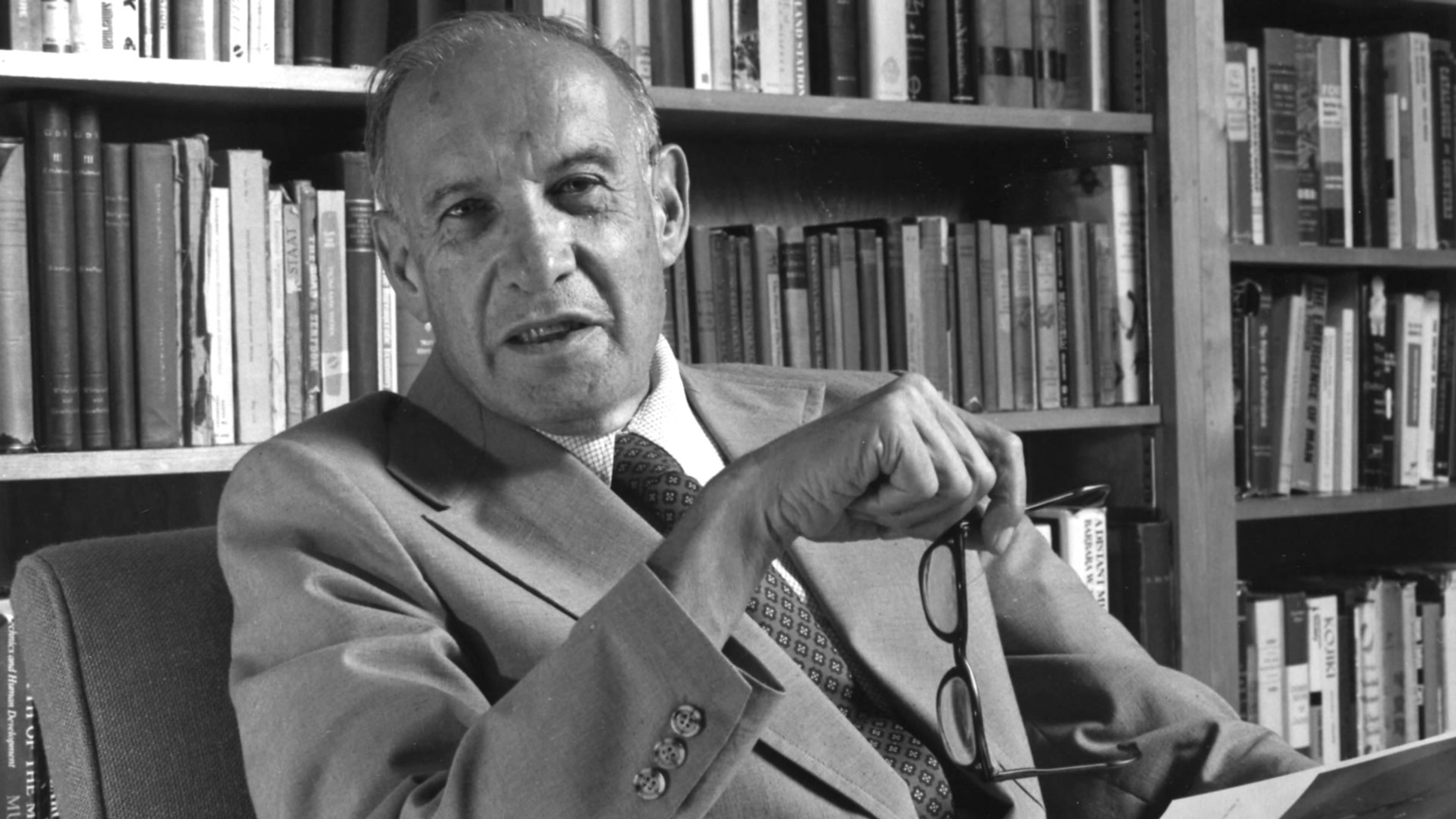Peter Drucker has been celebrated as “the man who invented management.” In the wake of what unfolded over the weekend in Charlottesville, Virginia, now is the time for corporate leaders to remember why he invented the discipline of management in the first place: to prevent the Nazis and other like-minded groups from ever rising again.
Before Drucker published Concept of the Corporation, The Practice of Management, The Effective Executive and more than two dozen other books that generations of businesspeople have used to shape and steer their enterprises, the Austrian-born writer, professor, and consultant found himself in Hitler’s crosshairs.
Drucker had penned two monographs—one on a Jewish-born political philosopher named Friedrich Julius Stahl and another titled “The Jewish Question in Germany”—that were burned and banned by the Nazis. By 1934, Drucker had fled Germany, where he’d been teaching and working as a newspaper reporter. He first made his way to England, and eventually settled in the United States.
Over the next 60 years, before he died in 2005 at the age of 95, Drucker advised countless executives on how to more effectively run their companies. Among them were some of the most famous names in the history of business: Charlie Wilson of General Motors, IBM’s Thomas Watson Jr., Citibank’s Walter Wriston, Intel’s Andy Grove, Coca-Cola’s Donald Keough, A.G. Lafley of Procter & Gamble.
Along the way, however, Drucker never lost sight of his real aim: not to help companies make more money (although he recognized that without turning a steady profit, it was impossible to be sustainable) but to encourage business to fulfill its role as a leading institution of society.
Drucker knew firsthand, after all, what happens when our institutions don’t act as unflinching protectors of our most basic values: “Terror,” as he put it, is apt fill the void.
“To make our institutions perform responsibly,” Drucker asserted in his 1973 masterpiece Management: Tasks, Responsibilities, Practices, is “the only safeguard of freedom and dignity.”
These words took on fresh urgency after another key institution—the presidency—failed to denounce in the strongest terms the horde of Nazis, white supremacists, and pro-Confederates who descended on Charlottesville to trumpet their hate, resulting in injury and death.
Not surprisingly, the decidedly mealymouthed response from the normally blunt Donald Trump—in which he condemned the violence and bigotry “on many sides”—only emboldened the racists, anti-Semites, and xenophobes who are an essential part of his political base. “There was virtually no counter-signaling of us at all,” noted the Daily Stormer, a neo-Nazi website. “Really, really good. God bless him.”
In all of this, Drucker would have discerned one aspect of an extremely disturbing pattern: a nod and wink from a man who rode into the nation’s highest office by playing on “the despair of the masses” (or at least those of the white working class); by promising them “a miracle . . . which belies the evidence of one’s reason” (like the return of their old manufacturing and coal jobs); and by creating “demonic enemies” for them to rail against (whether Muslims or Mexican immigrants, or his African-American predecessor in the Oval Office). Tellingly, each of these quotations is from The End of Economic Man, Drucker’s 1939 book about the origins of fascism in Europe.
Indeed, if there had been any lingering doubts about how the Trump presidency threatens America, his conduct over the weekend should leave none.
Which brings us back to the obligation of business—which, Drucker reminded us, “is one of the very few institutions . . . that is not nationalistic in its worldview” and, at its best, “brings together” all kinds of people and “unites them in a common purpose.”
As we witness the dismantling of the sacred institution that Trump now occupies (and, for the most part, the abdication of another—Congress), it is more important than ever that the corporate community take responsibility.
To be sure, a number of businesses in downtown Charlottesville did hang signs in their doors and windows that read, “If Equality and Diversity Aren’t for You, Then Neither Are We.” Airbnb is to be applauded for canceling the accounts of those linked to the white nationalist rally in Charlottesville. And on Monday, Merck CEO Kenneth Frazier stepped down from a Trump advisory council on manufacturing. “America’s leaders must honor our fundamental values by clearly rejecting expressions of hatred, bigotry and group supremacy, which run counter to the American ideal that all people are created equal,” Frazier said.
This is the moment for other top executives to be resolute, as well. Speak out against Trump’s position. Don’t equivocate. If you serve on a White House panel, resign like Frazier did. If you’re asked to meet with this president, decline.
Do this for the good of your company. As Drucker declared, “Management has a self-interest in a healthy society.” Mainly, though, do it because it’s the right thing to do.
In his autobiography, Drucker recounted how he had written his essay on Friedrich Julius Stahl as “a frontal attack on Nazism.” And while it had no huge impact, despite being censored by the state, “it made it crystal-clear where I stood,” he wrote, “and I knew I had to make sure for my own sake that I would be counted.”
“The greatest sin,” Drucker added, “may be the . . . sin of indifference.”
Business—perhaps the last best institution we have—must not stand indifferent now.
This story reflects the views of this author, but not necessarily the editorial position of Fast Company.
Recognize your brand’s excellence by applying to this year’s Brands That Matter Awards before the early-rate deadline, May 3.
